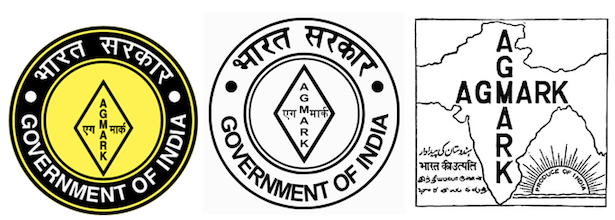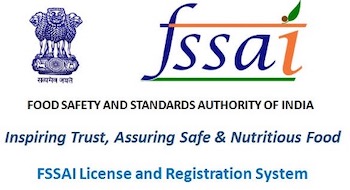🧪 Quality Control
Learn about AGMARK, ISO, ISI, ECOMARK, HACCP, CODEX, FSSAI
Agriculture Produce (Grading and Marking) Act (AGMARK)
- Agmark stands for “Agricultural Marking”.
- In order to have a systematic marketing of Agricultural Produce on the basis of well-defined quality, Indian Legislature in
1937passed an act known as “Agriculture Produce (Grading and Marking) Act, 1937”. - This act is not mandatory. It is permissive in nature.
- It is one’s choice to go for Agmark grading, if one can meet their specifications.
- Rules under this Act are called “General Grading and Marking Rules, 1937”.
- Rules have been revised in 1988 and are called General Grading & Marking Rules, 1988.
- Grading of Agricultural items under these rules is called
AGMARK GRADINGorAgmark certification.

- Agmark is the exclusive property of Govt. of India.
- It is not a private trade mark.
- Directorate of Marketing & Inspection (DMI) is the authority on the Agmark whose head quarter is now at Faridabad and branched head quarter is at Nagpur.
- It is the DMI which enforces the Agricultural Produce Act, 1937.
- Grading and marking of goods for domestic consumption was first started in ghee (1938).
- Agmarking for exportable commodities is compulsory, and was first started for sunnhemp (1942).
- Central Agmark Laboratory at
Nagpur.
Objectives of Agmark Scheme
- To assure the consumers a product of pre-tested quality & purity.
- To enable the producer of good quality products to have better returns.
- To have a sale of the product in the market with a uniform composition and well-defined quality.
- To eliminate the malpractice of adulteration in the movement of the product from producer to consumer.
International Organization for Standardization (ISO)

- ISO came into existence in
1947. UPPSC 2021 - The objective of ISO is to promote the development of standards in the world with a view to facilitating international exchange of goods and services and to develop cooperation in the sphere of intellectual, scientific, technological and economic activities.
- At present 164 counteirs are member. India is the founding member.
- H.Q.
Geneva, Switzerland.
Indian Standard Institution (ISI)

- The institution operates under an Act of Parliament (ISI Certification Mark Act), under which the industrial items are stamped with ISI mark.
- ISI framed the standards in consultation with industries, scientists and technical organizations in the country.
- Came into force in
1955but later renamed to Bureau of Indian Standards (BIS) in1986.
ECOMARK

- Ecomark or Eco mark is a certification mark issued by the Bureau of Indian Standards to products conforming to a set of standards aimed at the least impact on the ecosystem.
- To protect and conserve nature, GoI (Ministry of Environment) has instituted a scheme to make the products with ECOMARK based bio-degradability of the product or what is known in general parlance as
environment friendly products.
HACCP

- Indian manufacturers need to upgrade the quality of the products by adopting HACCP (
Hazard Analysis and Critical Control Point), a food safety system, which is an internationally recognized auditing method. - HACCP focuses attention on chemical, physical and microbial hazards.
Codex Alimentarious Commission (CODEX)

- Established in
1963UPPSC 2021 by Food and Agriculture Organisation (FAO) of the United Nations (UN) and the World Health Organisation (WHO). - It recognizes HACCP based system for food. Therefore, sometime referred as
CODEX-HACCP. - CAC establishes food standards which are termed as Codex alimentarous.
- The Codex Alimentarius itself is a series of food standards, codes and other regulations which countries can use as models in their domestic food legislation and regulations, and which can be applied to international trade.
Food Safety and Standards Authority of India (FSSAI) NABARD 2021
- It is autonomous body under Ministry of Health & Family Welfare, GoI.
- Established under
FSS Act, 2006and formed in2011. - Responsible for protecting and promoting public health through the regulation and supervision of food safety.
- H.Q.
New Delhi.
- FSSAI is the single reference point for all matters relating to Food Safety and Standards, Regulations and Enforcement.
- The following Acts/Orders mentioned in second schedule of the Act are going to be repealed in Food Safety and Standards Act, 2006:
- Prevention of Food Adulteration Act, 1954

- Fruit Products Order,
1955(FPO) - Meat Food Products Order, 1973
- Vegetable Oil Products (Control) Order, 1947
- Edible Oils Packaging (Regulation) Order, 1998
- Solvent Extracted Oil, De oiled Meal, and Edible Flour (Control) Order, 1967
- Milk and Milk Products Order, 1992
- Any other order under Essential Commodities Act, 1955 relating to food
Agriculture Produce (Grading and Marking) Act (AGMARK)
- Agmark stands for “Agricultural Marking”.
- In order to have a systematic marketing of Agricultural Produce on the basis of well-defined quality, Indian Legislature in
1937passed an act known as “Agriculture Produce (Grading and Marking) Act, 1937”. - This act is not mandatory. It is permissive in nature.
- It is one’s choice to go for Agmark grading, if one can meet their specifications.
- Rules under this Act are called “General Grading and Marking Rules, 1937”.
- Rules have been revised in 1988 and are called General Grading & Marking Rules, 1988.
- Grading of Agricultural items under these rules is called
AGMARK GRADINGorAgmark certification.

- Agmark is the exclusive property of Govt. of India.
- It is not a private trade mark. …
Become Successful With AgriDots
Learn the essential skills for getting a seat in the Exam with
🦄 You are a pro member!
Only use this page if purchasing a gift or enterprise account
Plan
Rs
- Unlimited access to PRO courses
- Quizzes with hand-picked meme prizes
- Invite to private Discord chat
- Free Sticker emailed
Lifetime
Rs
1,499
once
- All PRO-tier benefits
- Single payment, lifetime access
- 4,200 bonus xp points
- Next Level
T-shirt shipped worldwide

Yo! You just found a 20% discount using 👉 EASTEREGG

High-quality fitted cotton shirt produced by Next Level Apparel